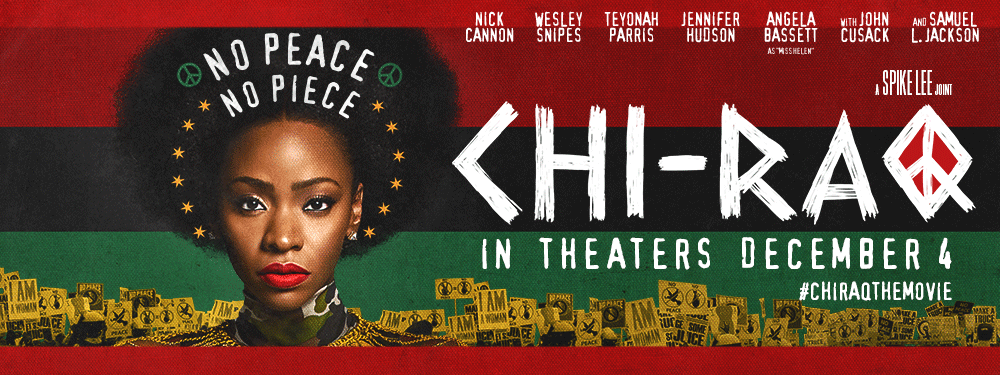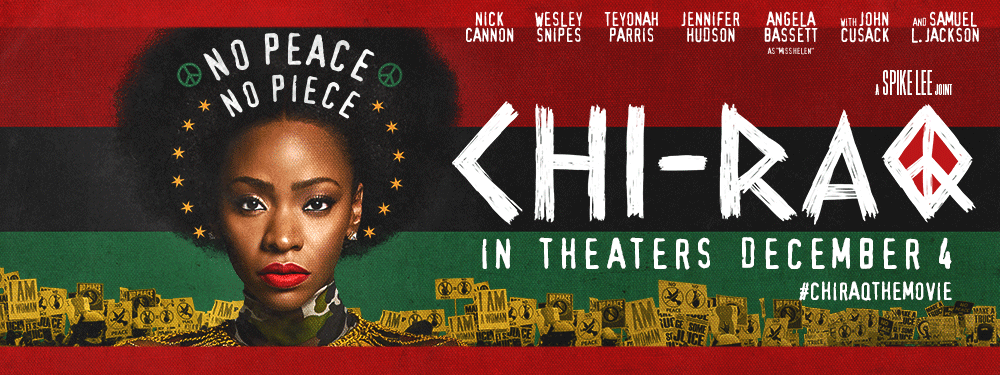The Third Strike is powerful and outstanding.
Ntare Mwine Talks 'The Chi,' Embracing Ronnie And Connecting With The South Side
Some television shows make your heart race -- they make you gasp for breath as you anticipate the next twist and turn. Then, there are shows that speak to your soul; they seep into your consciousness dredging up long forgotten memories. In her outstanding drama series, The Chi, Golden Globe winner Lena Waithe give the South of Chicago back to its people. Told in a cinéma vérité style, The Chi shows everyday folks scratching, surviving and most importantly, living. Layering an extensive character study with a coming-of-age tale, Waithe seamlessly connects the lives of Emmett (Jacob Lattimore), Brandon (Jason Mitchell), Kevin (Alex R. Hibbert), and Ronnie (Ntare Mwine). We watch as they confront themselves, their Black manhood, and one another after a violent event interlocks their lives forever. Over the course of the ten-episode first season, it’s Ronnie that makes the biggest transformation – leading him down a path that even Ntare Mwine didn’t see coming.
As I stepped into the infamous Blue Moon Café in Brooklyn’s Fort Greene, I spotted Mwine seated near a window with a cup of tea in his hand; the actor stood as I approached. Unlike his character, Mwine’s face was bare, Ronnie’s infamous goatee and haunted eyes were gone for the moment. Instead, a bright and warm gaze greeted me. Mwine was eager to chat about the role that has changed his life most unexpectedly. The New York University alum wasn’t apart of the original cast of The Chi, nor was Ronnie a role he thought he could tackle. "I came on board the second round in the regular audition process," he remembered. "It was a role that I'd never done before, so I didn't think I was right for the part. But the casting director, Carmen Cuba, cast me in the show, The Knick, so I went. The audition scene was Ronnie high -- smoking on the couch. I had no idea how to even play this. I couldn't see myself doing it. I literally went to the audition just to thank Carmen for casting me in The Knick, because it had opened up so many other doors. I didn't do a great audition. I walked out and went back to the car. I got a call from my agent, saying, "She thinks you're right for the role, but she doesn't want to submit the tape she made, she thinks you can do a better tape." (Carmen) asked me to do a self-tape, but I was going to Uganda for the holidays. (I) came back, and never did the self-tape because I thought, “I'd love to do it, but I'm not right. They're gonna find someone from Chicago to do it.”
Continue reading at Shadow and Act.
Interview: Teyonah Parris Talks ‘Chi-Raq’, Female Driven Stories & the Storm Surrounding the Spike Lee Joint
 The year I graduated from a Chicago Public high school, 27 of my fellow CPS peers were gunned down. Last year, there were a total of 2,587 shooting victims in the city. I was born and raised on the South Side of Chicago, and in the 18 years that I lived there full time, things changed drastically, And yet, it’s still home to me. When Spike Lee announced his new film “Chi-Raq”, I was immediately disturbed as were many of my family and friends who still called Chicago their home. When the initial trailer for the film was released, further fuel was added to an already smoldering flame. However, knowing Spike Lee’s history of pushing back against systematic oppression, and exploring the varied issues that continually plague the Black community, Lee’s satire “Chi-Raq” fits into his lengthy filmography.
The year I graduated from a Chicago Public high school, 27 of my fellow CPS peers were gunned down. Last year, there were a total of 2,587 shooting victims in the city. I was born and raised on the South Side of Chicago, and in the 18 years that I lived there full time, things changed drastically, And yet, it’s still home to me. When Spike Lee announced his new film “Chi-Raq”, I was immediately disturbed as were many of my family and friends who still called Chicago their home. When the initial trailer for the film was released, further fuel was added to an already smoldering flame. However, knowing Spike Lee’s history of pushing back against systematic oppression, and exploring the varied issues that continually plague the Black community, Lee’s satire “Chi-Raq” fits into his lengthy filmography.
Leading up to “Chi-Raq’s” release, the lovely Teyonah Parris who is the lead actress in the film, recently chatted with Shadow and Act about the project, the controversy surrounding it, and what drew her to the story to begin with.
Aramide Tinubu: Thanks so much Teyonah for speaking with me and with Shadow and Act.
Teyonah Parris: Of course, I am familiar with you guys.
AT: Oh that’s fantastic; well I know you only have a limited amount of time so I’d love to get started.
TP: Yes ma’am.
AT: Great, well let’s talk about “Chi-Raq”. Ironically, I was born and raised on the South Side of Chicago, so when I first heard that Mr. Lee was naming his new film “Chi-Raq” I was admittedly alarmed. However, what stuck out to me when I initially viewed the trailer was the fact the story seemed to be focused on women. So often, horrible acts of violence affect women and children most deeply. More frequently than not, we are the ones who are left behind. I feel like a more female-driven perspective hasn’t been seen from Spike Lee since his film “Crooklyn” in the early ‘90s. What is you opinion on that, do you feel like “Chriraq” is a woman’s story?
TP: I think that the movie being led and the source of leadership that comes from a woman in this film, I definitely think is exciting, and I think like you said, we’re often left out of the narrative and our side of the story is generally not explored. Particularly in circumstances where there are larger numbers of men who are a part of this situation. Let me be clear, there are women who are also apart of this, I’m painting a very broad stoke.
AT: Oh most definitely, of course.
TP: But yes, it’s often the women who are left to deal with everything and put the pieces back together. So to have this young woman Lysistrata, take a stand and lead the charge in reforming this community and the movement going global; I think it’s really exciting to see a woman take charge in that way. I think that it’s also important to remember that our movie “Chi-Raq” is based off the Ancient Greek play “Lysistrata,” which was written over 2400 years ago by the playwright, Aristophanes. So [Spike Lee] really took the exact narrative and put it on the South Side of Chicago, and it’s crazy that the story is still so potent and so relevant.
AT: Centuries later.
TP: Yes, centuries later.
AT: How did you come to the project?
TP: I came on to the project after meeting with Spike at just a very general breakfast. We didn’t talk about work or anything, but he had seen “Dear White People” and we just had a general meet and greet, so to speak. And then a few weeks later he just sends me an email with the script for “Chi-Raq”. There was no preface or anything, he just sends it and says read it.
AT: Oh my wow, OK.
TP: So I’m reading it and I see the name Lysistrata, and I’m familiar with that play. I did it during my time at Julliard. Then I realized that the play was set on the South Side of Chicago. I thought, oh wow; Spike is doing the modern reimagining of this play; so that automatically got me excited. And then once I’d spoken to Spike, the first thing that he said was that we have to save lives. If we save even one life, then we’ve done our work. But we have to save lives, and that’s what his mission has been going forward with the film. And, that’s been mine for sure as an artist, being a part of this.
AT: There has been a ton of controversy surrounding the film already. I know that people are extremely outraged because the rampant gun violence in Chicago is very real. Did you have any reservations about “Chi-Raq” because of that? And where do you feel all of the pushback has come from?
TP: I think that we’re dealing with a real life situation. This isn’t something that has been made up; the statistics in that city are very real. Spike did not create that, and he also did not create the term “Chi-Raq”. That was born of the community from local rappers in an effort to express the dire situation that they’re in, which is essentially that you are safer in the streets of Iraq or Afghanistan than you are on the South Side of Chicago.
Continue reading at Shadow and Act.
Image: Chi-Raq/Amazon


